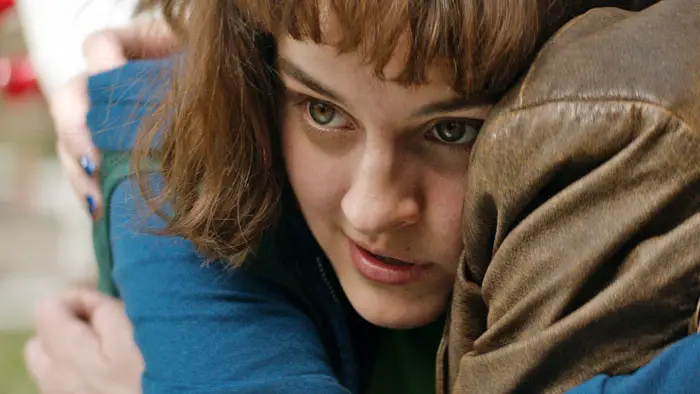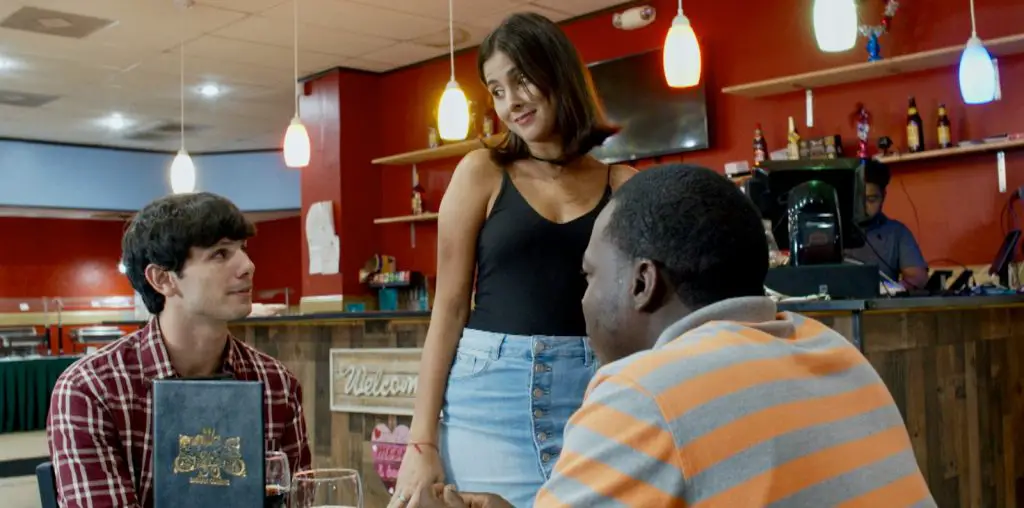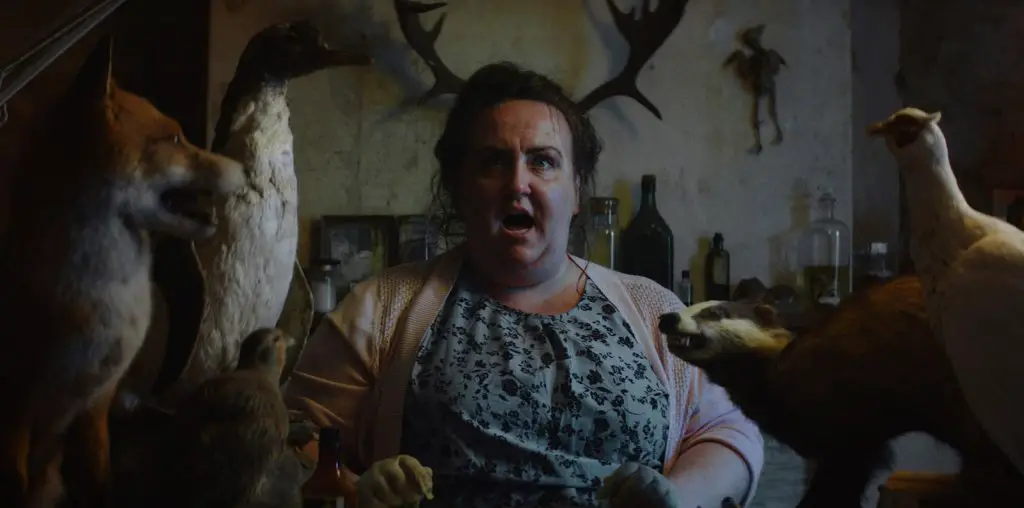
The contradicting ideologies found in Jumbo, written and directed by Zoé Wittock, make it one of the most unstable films I have ever watched. On the one hand, its beautifully told, heartbreaking narrative tenderly tackles the subject of objectophilia, a phenomenon in which people are romantically and sexually attracted to objects. In this frame, it is the experience of Jeanne (Noémie Merlant), a young woman who is in love with a ride in the amusement park she works at she calls Jumbo. On the other, it is a story of emotional abuse, sexual coercion, and sexual assault that is ultimately dismissed.
What is great is how the movie treats Jeanne’s love for Jumbo as real and valid. The characters who laugh at her or call her crazy are the villains. Wittock makes it clear that Jeanne is consistently happier around the spinning ride — which is sentient and communicates with Jeanne by whirling and turning — than at any other point in the story. This is aided by gorgeous cinematography by Thomas Buelens, while Thomas Fernandez’s editing cleverly utilizes elements of New French Extremism to put the audience in the lead character’s mind and help viewers see her deep sexual attraction to Jumbo.
However, the focus of Jumbo is not on Jeanne’s burgeoning romance with the titular ride but the hostility she receives for it from those around her. It especially focuses on the shaming and emotional abuse she receives from her mother, Margarette (Emmanuelle Bercot), with whom she lives. Margarette is divorced from Jeanne’s father and spends her time hooking up with men she meets at the bar she works at. Then there is Jeanne’s creepy boss Marc (Bastien Bouillon). He’s consistently flirting with and coming on to Jeanne despite her clear lack of attraction to him and her deep uncomfortableness around him. But when he shows up at her house unannounced, Margarette welcomes him in and then pushes her daughter to give him a chance despite her disdain for him as a person and his advances.

“…Jeanne…is in love with a ride in the amusement park she works at…”
With all of this in mind, the film reminded me of the noir classic Sweet Smell of Success due to the similarities between the two villainous main characters in each and the psychological manipulation both couples employ to mold a young, innocent woman to their desires. However, something strange happened towards the end of Jumbo. Now, in order for my sheer frustration to be fully understood, I need to spoil the ending, so read the rest of this paragraph at your own risk. Abruptly, Marc disappears, and after a short fight, Margarette does a 180, becoming supportive of Jeanne albeit in a somewhat passive-aggressive way. Never before has a movie given me such emotional whiplash. In the end, the film never addresses the abuse and assault committed by Margarette and Marc.
This extreme character shift represents a larger issue throughout the movie: characterization. Characters are rarely given opportunities to show who they are, and many of their actions contradict previous ones. This leads to constant confusion as to the intent of Wittock with her feature-length debut. For example, Marc, despite doing many lecherous things, is nice and kind to Jeanne at times, causing confusion as to whether he just wanted to get in Jeanne’s pants or genuinely cared about her.
While I can understand and accept poor writing, it is deeply offensive to me that Wittock brushed under the rug the extensive abuse that Jeanne faces from Margarette and Marc. It normalizes non-consensual sexual behavior and parental abuse, both prevalent and very traumatic experiences. Therefore, despite all the good present in Jumbo, it would be immoral of me to recommend it.

"…treats Jeanne's love for Jumbo as real and valid."


